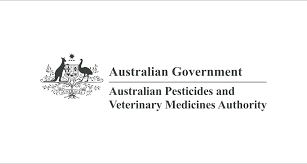THE Senate inquiry into Australia’s agricultural chemical regulator, the Australian Pesticides and Veterinary Medicines Authority (APVMA), has produced nine recommendations aimed at addressing staffing issues and improving the organisation’s performance.
 The inquiry, which was initiated in October last year, delved into the independence, effectiveness and responsiveness of the APVMA.
The inquiry, which was initiated in October last year, delved into the independence, effectiveness and responsiveness of the APVMA.
Its report released on Friday highlighted the need to address issues relating to the APVMA’s forced relocation from Canberra to Armidale in northern New South Wales, and the subsequent loss of experienced staff and delays to regulatory approvals.
It called on the Australian Government to take into consideration the disruption caused by the move and to prioritise “a fit-for-purpose and stable workforce over any decentralisation policy”.
CropLife Australia chief executive officer, Matthew Cossey, said the report confirmed the APVMA’s status as a world-leading regulator whose decisions were based on science and evidence.
“The inquiry was established following sensationalised and baseless media reporting without any scientific foundation. However, the weight of evidence presented to the Committee has confirmed why the community should have confidence in the decisions of the APVMA,” he said.
Inquiry recommendations
- That the Australian Government undertakes a comprehensive scoping study on the need for regulatory scientists across Australian Government agencies. The scoping study should consider:
- the current educational, training and work experience environment for regulatory scientists;
- the likely future demand for regulatory scientists and the skills and competencies they will require; and
- the findings of the Environmental Health Standing Committee (enHealth) on the need for regulatory scientists.
In undertaking this study, relevant educational and training bodies, and Australian Government agencies, should be consulted as required.
- That the APVMA works closely with the Australian education sector to identify and expand integrated learning opportunities that would provide science graduates with experience in regulatory environments.
- That the APVMA progresses, as a matter of priority, the development and implementation of a robust quality control framework and a fit for purpose workflow management system.
- That the Australian Government takes into consideration the disruption caused by the forced relocation of the APVMA (including the ongoing impact on staff capability and capacity), and prioritises a fit-for-purpose and stable workforce over any decentralisation policy.
- That the Australian Government confirms its ongoing support for the Improved Access to Agricultural and Veterinary Chemicals Initiative and provides sufficient funding for the initiative over the forward estimates to ensure its continued operation.
- That the Australian Government commissions an independent assessment of the impact of regulatory costs on the registration of minor use chemicals, with a view to obtaining evidence that would inform policy and consider the availability of minor use chemicals in Australia.
- That the APVMA consults with key stakeholders to establish a formal mechanism for ongoing liaison and discussion. The forum should develop clear terms of reference which set out its working arrangements, and the minutes of each meeting should be recorded and made public in a timely manner.
- That the Australian Government develops and implements a national strategic plan for agricultural and veterinary pest control innovation, which addresses Australian specific environmental conditions and pests.
- That the Department of Agriculture and Water Resources and the APVMA undertake a formal study of the United Kingdom Pesticides Forum and the United States Environmental Protection Agency Pesticide Program Dialogue Committee with the aim of establishing a similar forum for the Australian regulatory environment.
Read the full report.
Each year, over $3 billion is spent on agvet chemicals in Australia. More than 11,480 pesticide and veterinary medicine products, managed by over 900 registrants, are currently registered in Australia. The APVMA receives around 5000 applications annually for various assessments.

Why hasn’t Barnaby Joyce been made accountable for the loss of experienced staff by his movement of the APVMA to Tamworth?